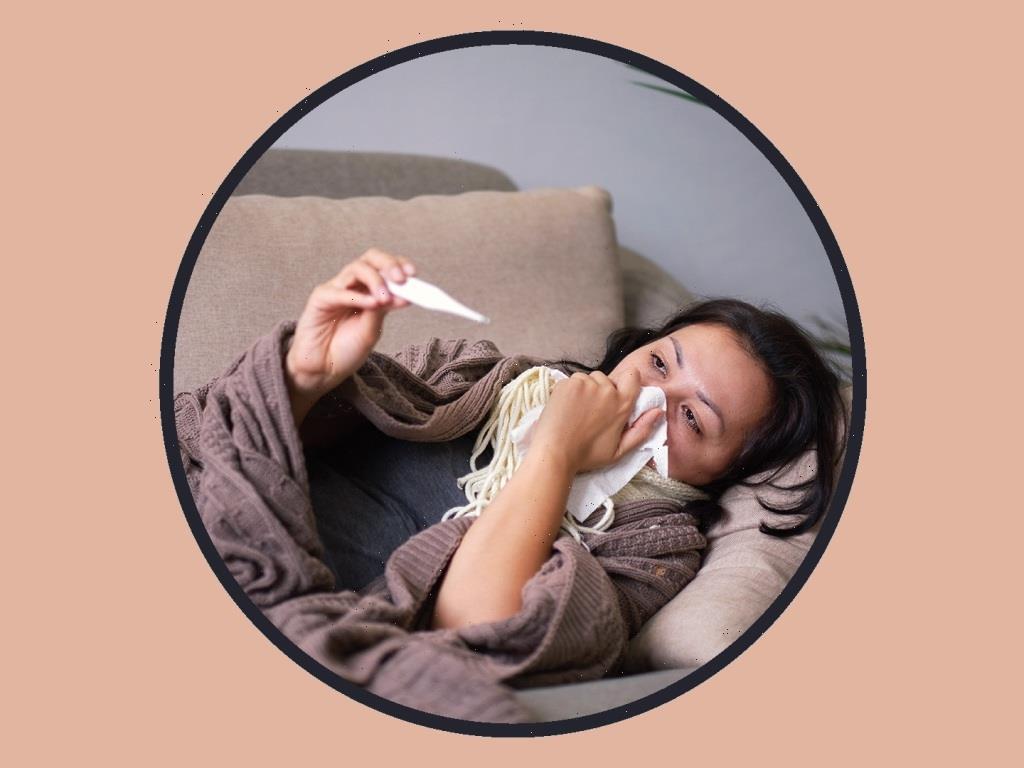It is officially cold and flu season (and we’re seeing with Omicron another wave of coronavirus cases) — which means everyone around you is at risk of getting sick. Ugh. While you might be able to avoid coughing and sneezing at work by avoiding those who are infected, what happens when you’re the only healthy one in a house filled with sickos?
Fortunately you don’t have to move out. There are some tips and remedies that you and your housemates/family/friends can do that will help save you from catching the phlegm-infested fate that’s overcome them.
Get a flu & COVID-19 vaccination
No one likes needles but sometimes it’s your best defense when it comes to avoiding getting ill (or bringing sickness into your house in the first place).
“If your household members are sick because of the flu then chances are higher of you getting affected with the virus as well,” Dr. Ashish Sharma, an Internal Medicine Physician at Yuma Regional Medical Center. “The most important aspect of prevention is to get a flu vaccine every year.”
And receiving one is always better late than never. “Even if someone in the house has already been diagnosed with the flu, it’s not too late to get vaccinated,” Dr. Elizabeth Wang, MD an Infectious Diseases Physician at the University of Maryland St. Joseph Medical Center tells SheKnows. “However someone with a weakened immune system and at high risk for influenza complications has already been exposed to a household member with the flu—in addition to practicing the precautions listed above–it’s wise to talk with your health care provider about taking Tamiflu as a precaution.” Wang says people with the flu should take Tamiflu to decrease the chances of spreading the virus and to shorten the duration of symptoms.
The same can be said for your COVID-19 vaccine and booster — if you aren’t sure if it’s a right fit for you, just talk with your doctor. I promise they’ll have thoughts.
Wash your hands, and then wash them again
Germs are everywhere and how do they spread super fast? Through touch. “Relentless hand washing is crucial for staying healthy,” says Wang. “Think about when you wash your hands, too — after using the bathroom, of course, but also after blowing or wiping your nose, after touching common surfaces like doorknobs, light switches, phones/cellphones, countertops, keys, computer mouses, etc. — as we inadvertently expose ourselves to illness-causing germs and bacteria when we touch these things.”
Wang says it’s also important to be thorough about how you wash your hands. She advises using soap and warm water and lathering for at least two full choruses of “Happy Birthday” or the Jeopardy! theme song, which sounds pretty fun, at least peppy. If soap and water aren’t available, she advises using an alcohol-based hand gel and letting it dry thoroughly before touching anything else. “Be mindful of cleaning your entire hand—including under the nails and underneath rings—to ensure that you’re killing as many harmful germs as possible,” she says. “It’s certainly an added risk when you’re directly caring for someone who’s sick, as you’re doing things like picking up their used cups or mugs or tissues, giving them medicine, taking their temperature, so the best thing you can do to protect yourself is to practice good hand hygiene.”
Wipe everything clean
“The influenza virus can stay for eight hours on different articles and objects, such as on a remote control, door knob, cups, plates, clothes etc. that’s been touched by sick family members,” says Sharma. “It also makes it easy to disinfect these objects with alcohol, hydrogen peroxide, iodine or bleach based disinfectant after one recovers from illness.”
Smartphones are also a big source of germs, which is why Wang recommends keeping bleach wipes handy and wipe down your cellphone as needed. “Avoid placing it on common household or public surfaces, and try not to let anyone in your home who’s sick touch your phone or your charging cords,” she says. “Our phones are in our hands and near our eyes, noses and mouths—all areas in which harmful germs and bacteria can easily enter the body and make us sick.”
Wear masks
You might feel a little silly doing but Wang says “don’t underestimate the power of the surgical mask.”
She suggests going with the majority rule to determine who should wear it. “If one family member has the flu, and all others are healthy, it’s helpful for the sick person to wear the mask. If several people in the household are down with the flu, the healthy minority should wear masks to protect themselves.”
If no mask is available, Sharma says that the sickies should cough into their elbow or use tissues and must wash hands after discarding tissues in trash.
Create a “sick room”
To prevent the virus spreading to other parts of the house, Sharma suggests creating a sick room with a separate bathroom where the sick family member can stay until he or she recovers is a good idea if you have enough space availability.
Wang agrees, adding that if it’s possible, “quarantine any people with illness in one bathroom so that you have a ‘sick’ and a ‘well’ bathroom. Use rubber gloves to clean, and keep plenty of bleach wipes on hand to wipe down counters, doorknobs, light switches, faucet, toilet and shower handles as needed.” She says it’s also a good idea to keep your “healthy” toothbrush well away from that of anyone who’s sick, and to use separate tubes of toothpaste.
Before you go, check out our favorite all-natural cold and flu remedies for kids:
Source: Read Full Article

